Taste of Science - Day 1
The event will only take place as a free online event on YouTube livestream. Subscribe to our newsletter here to make sure you don’t miss a free dai HOME event.
Culture remains free – the dai HOME free of charge. We are very happy about donations during this time.
With Taste of Science - I want to know! we bring a science weekend with current and socially relevant topics from the world of science to your home.
Renowned experts and authors will guide you through a wide range of disciplines: from natural science, psychology, mathematics, physics, economics and social sciences to medicine and technology.
A varied program of entertaining lectures and inspiring discussions awaits you. Ask your questions to the experts in the live chat on the event and join the discussion!
In cooperation with the scientific publisher Springer Nature.
As part of the International Science Festival - Geist Heidelberg.
Program:
Saturday, 05.12.
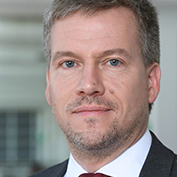 10:00 hrs: Niels Peter Thomas
10:00 hrs: Niels Peter Thomas
How does knowledge get into the book - and into the world?
Further information about the lecture
Niels Peter Thomas, responsible for 13,000 book publications annually under the umbrella of Springer Nature, gives a look behind the scenes at how knowledge comes into the world through books. He takes the audience on a journey through the international publishing world and also introduces the various types of scientific books, especially non-fiction and guides for laypeople from other fields.
Dr. Niels Peter Thomas completed his master's degree in electrical engineering and holds a doctorate in economics. He is responsible for the book portfolio at Springer Nature and coordinates the book business of Palgrave Macmillan or J.B. Metzler. He is also a university lecturer on topics related to digitization in the publishing industry and the future of book publishing and reading.
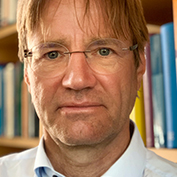 10:30 hrs: Sven Barnow
10:30 hrs: Sven Barnow
Emotions under control? Why you need emotions and how to regulate them
Further information about the lecture
Our handling of feelings is largely learned and unfortunately this is not always helpful. Similar to the way bad habits usually harm us in the long run, a problematic regulation of feelings can be accompanied by or even cause psychological and physical problems.
The good news is that what is learned can - within a certain framework - also be modified, improved or learned anew. Similar to breaking problematic habits, this requires endurance and training.
Sven Barnow explains how emotions can be perceived in a differentiated way and regulated flexibly and why this is important for physical and mental health.
Prof. Dr. Sven Barnow is head of the Clinical Psychology and Psychotherapy Unit at the Institute of Psychology at Heidelberg University. Together with his team, he has conducted and published numerous studies on the importance of emotion regulation for mental health and psychopathology. One of the results of these studies is the training "Emotions under control", which has been conducted successfully for several years.
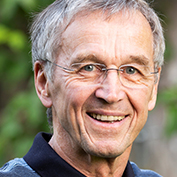 11:00 hrs: Hubert Österle
11:00 hrs: Hubert Österle
"Life Engineering" - More quality of life thanks to machine intelligence?
Further information about the lecture
Machine intelligence changes our lives. The Internet, digital assistants and sensors in households, cars and wearables provide data that companies collect and use to understand patterns of human behavior.
But does this development benefit the welfare of the people? Or does it only lead to the accumulation of capital and power without regard for the quality of human life?
Hubert Österle promotes the debate about the future of man and machine, about happiness and evolution, and about the major changes that digital technology is bringing about. In doing so, he integrates the perspectives of computer science, economics, politics, neuro- and social sciences, psychology, philosophy, ethics and religion in an interdisciplinary way.
Prof. Dr. Dr. h.c Hubert Österle was Professor of Information Systems at the University of St. Gallen. He founded the Institute for Information Management and the Executive MBA program "Business Engineering" as well as several companies.
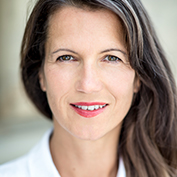 11:30 hrs: Diana von Kopp
11:30 hrs: Diana von Kopp
Top in the job - 10 steps to success
Further information about the lecture
Professional fulfilment is one of the strongest needs of our time. But how do you develop your potential and become successful in what you love?
Diana von Kopp has summarized the 10 essential factors and reveals effective techniques and tools.
The Diplompsychologin, author and entrepreneur advises companies on the development of management personnel. As an author she has published articles for the Frankfurter Allgemeine Zeitung as well as scientific non-fiction books.
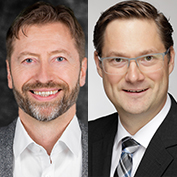 12:00 hrs: Lutz Kasper and Patrik Vogt
12:00 hrs: Lutz Kasper and Patrik Vogt
Physics & Barrique: A wine tasting in 10 experiments
Further information about the lecture
A good wine promises first and foremost culinary pleasure. The two natural scientists and wine connoisseurs Lutz Kasper and Patrik Vogt show the scientific side of a good drop with physical topics and experiments:
Where does the pop sound come from when uncorking a wine bottle and what does it have to do with the speed of sound? How can you check with simple means whether the overpressure of a champagne bottle complies with the required EU directive? How can an already aged red wine be transformed into a Blanc de Noirs and how can it be decanted as quickly as possible?
Prof. Dr. Lutz Kasper studied physics and mathematics in Hannover (no wine far and wide) and stations in Berlin and Potsdam (Kreuzberg-Südhang, as Pinot Noir really not recommended). His next professional stations were in better locations: Frankfurt (not only apple wine), Freiburg im Breisgau (new sweet!) and Schwäbisch Gmünd in Remstal (sometimes noble Lemberger). His credo is also apparent to his students: to look for unexpected cross connections between disciplines - as well as between wine and physics.
Dr. Patrik Vogt was born in Arzheim in southern Palatinate, where viticulture has a long tradition and where both his grandparents and his mother ran a viticulture business. The love for wine was already in his cradle. As a trained teacher and physics didactician, he has been head of the department "Media Education, Mathematics and Natural Sciences" at the Mainz Institute for Teacher Training and Further Education since 2019. One of his areas of work includes a stronger connection to everyday life in physics lessons, which makes a physical approach to the topic of "wine" inevitable.
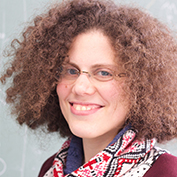 12:30 hrs: Carla Cederbaum
12:30 hrs: Carla Cederbaum
Meaning and limits of the relative
Further information about the lecture
"Everything is relative" said Albert Einstein according to the vernacular. In reality, of course, it is somewhat more complicated: His theories of relativity (both the special and the general) are based on the idea that the description of space and time with their inherent phenomena is dependent on the observer - i.e. relative. However, not everything is relative: some physical quantities and properties are independent of the observer.
Prof. Dr. Carla Cederbaum studied mathematics, physics and computer science in Freiburg and Cambridge and received her doctorate in Berlin. In addition to her research and teaching in mathematics, she is also active in science communication, for which she has received several awards. Since 2016, she has been a professor of mathematics in Tübingen, where she received the university's teaching award in 2017. She is a fellow of the Heidelberg Academy of Sciences.
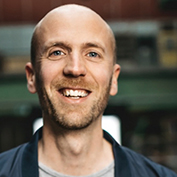 13:00 hrs: Michael Nolting
13:00 hrs: Michael Nolting
Artificial intelligence in the automotive industry
Further information about the lecture
Artificial intelligence (AI) will "turn the automotive industry upside down" in the long term. In order to master this disruption, car manufacturers must be able to tap the full potential of their data and be able to offer new services to their customers on a daily basis. Only by using AI can they transform themselves from "sheet metal benders" to "tech giants". Michael Nolting shows how this could work.
Dr.-Ing. Michael Nolting is Head of Digital Services & Data Analytics at Volkswagen Commercial Vehicles, consultant and expert in the areas of Artificial Intelligence, DevOps and Leadership. He is an honorary lecturer at the Leibniz University of Hanover. He runs a blog at www.michaelnolting.com, where he writes about his daily business - the transformation of a "sheet metal bender" into a "tech giant".
Sunday, 06.12.
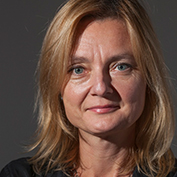 10:00 hrs: Magdalena Skipper
10:00 hrs: Magdalena Skipper
Wissenschaft und ihre Kommunikation zum Zeitpunkt einer Pandemie
Further information about the lecture
The year 2020 will remain in our memories for many things. It will also be remembered for the fact that science is in the public eye more than ever before. Every news magazine, every newspaper, every blog and every social media feed refers to science and its latest findings on a daily basis. It is the hour of science to use opportunity and responsibility equally. In her talk, Magdalena Skipper, Editor-in-Chief of the trade magazine Nature, will explore the questions of how well science has succeeded in this special year and what we can learn from it for the future.
Dr. Magdalena Skipper is editor-in-chief of the magazine Nature. She studied genetics and received her PhD from the University of Cambridge, UK. In 2018, she co-founded the Nature Research Inspiring Science Award for young female researchers.
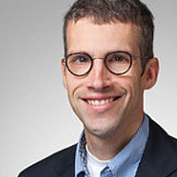 10:30 hrs: Andreas Franke
10:30 hrs: Andreas Franke
Brain doping & Co - The optimized society
Further information about the lecture
Performance enhancement by the pill, or "brain doping" for short, has become a real trend that has taken on alarming proportions within a very short time. How could it come to this?
Whereas our lives used to be determined to a large extent by the rhythm and tempo of natural conditions, today, globalization and digitalization seem to be increasingly dissolving spatial and temporal boundaries. The last hurdle to overcome seems to be our mind.
The social scientist and physician Andreas Franke illuminates the explosive topic from very different perspectives of sociology, medicine, sports and law and points out alternatives to "brain doping" - free of risks and side effects.
Dr. Dr. Andreas G. Franke has a doctorate in social sciences and a doctorate in medicine. As a specialist in psychiatry and psychotherapy, he worked for many years in hospitals in Germany and Switzerland. After several years as professor and dean at the University of Applied Sciences Neubrandenburg, he is now professor for case management with a focus on employment orientation and counselling in precarious life situations at the University of Applied Sciences of the Federal Employment Agency in Mannheim.
 11:00 hrs: Hubert Kleinert
11:00 hrs: Hubert Kleinert
30 Years of United Germany: Contemporary Witness and Historian Hubert Kleinert in Dialog
Further information about the lecture
This year we are celebrating the 30th anniversary of reunification and are amazed to see what an eventful history the country has experienced since then. Hubert Kleinert told this story in a new and exciting way in his book The united Germany. In the interview, he will talk about how he himself experienced this story and which experiences have been incorporated into his large-scale work.
Prof. Dr. Hubert Kleinert was a member of the German Bundestag from 1983-1990. Since 2000 he has taught politics and constitutional law at the Hessian University of Police and Administration in Gießen. He is the author of numerous publications on problems of democratic development, the party system and party history. He was a member of the Future Commission of the Prime Minister of North Rhine-Westphalia and is the author of several publications on German history.
The interview will be conducted by political scientist Dorothee Fetzer, Editorial Director at Springer and Program Manager of the publishing houses Springer VS and J.B. Metzler.
 11:30 hrs: Stefan Fröhlich
11:30 hrs: Stefan Fröhlich
Better than its reputation - Germany's role in the world
Further information about the lecture
No matter what leadership role is ascribed to Germany or what expectations one has of German foreign and European policy, some observers continue to see Berlin's political strength more as a risk than an opportunity for Europe.
But the analysis of German foreign policy paints a different picture: Regardless of the fact that Germany has involuntarily risen to become the central power in Europe since 2010, Berlin never acted alone in the three major crises of recent years (the euro crisis, the Ukraine crisis, and the refugee crisis), with the exception of the refugee crisis, but showed itself to be a pragmatic, thoroughly successful leading power that works closely with its allies and other institutions.
Does this also apply to the current challenge of the corona pandemic and future developments? How will Germany's role in the world develop?
The expert on German foreign policy and Springer non-fiction author Stefan Fröhlich is Professor of International Politics and Political Economy at the University of Erlangen-Nuremberg and Visiting Professor at the College of Europe and the Universities of Oxford, Bonn and Zurich.
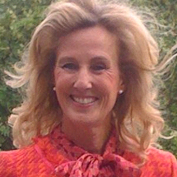 12:00 hrs: Ina Wunn
12:00 hrs: Ina Wunn
Why men cheat and Putin remains president
Further information about the lecture
Why do the citizens of a democratic country like Russia or even Turkey agree to a constitutional change that largely deprives them of their democratic rights?
Why is it so easy to use the police against any protest movement, however justified it may be?
And why does a church from which members are running away in droves still play such an important role in the public eye?
Obviously, political systems and institutions obey rules other than common sense - and on closer inspection these rules are as interesting as they are obvious. For natural and religious scientist Ina Wunn, the reason for the disloyalty in relationships is also related to Putin's eternal presidency and is explained in an entertaining and interesting way.
Prof. Dr. Dr. Ina Wunn studied geology, biology and religious studies in Marburg and Hannover. She received her doctorate first at the Philipps University of Marburg, then at the Leibniz University of Hannover. In 2002, she completed her habilitation at the University of Hanover on the topic "Evolution of Religions". Since 2005 Ina Wunn has been Professor of Religious Studies at the Leibniz University of Hannover.
 12:30 hrs: Argang Ghadiri
12:30 hrs: Argang Ghadiri
From the lecture hall to the kitchen - How scientists make their research palatable
Further information about the lecture
Scientists swap presentations for chef's knives, laboratories for hot plates - the kitchen serves as a place for vivid experimentation to convey science and research by sensory means.
How does a physicist cook his pasta al dente? How does digitalization conquer the kitchen? How can you improve your own perception of smell and taste? And how does music influence us when we feast? With culinary examples from the kitchen, Argang Ghadiri serves up tasty and exciting topics from science. Bon appetite!
Argang Ghadiri studied business administration in Sankt Augustin, Duisburg, St. Gallen and Helsinki and works as a research assistant at the Bonn-Rhine-Sieg University of Applied Sciences in the Department of Economics.
He combines his passion for science and cooking with knowledge tastes by talking to and cooking with guests from the scientific community.
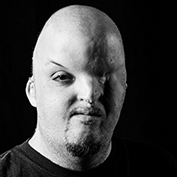 13:00 hrs: Lars Fischer
13:00 hrs: Lars Fischer
The origin of life on earth
Further information about the lecture
Where do we come from? And how did we come into being?
How life could develop is one of the biggest and still open questions in science. With the help of the most modern methods we can now reveal the inner structure of living beings and cells. So the answer to the oldest question of mankind is getting closer.
Like the comets and asteroids of our solar system, the dust clouds around young stars contain an abundance of chemical precursors from which components of life have evolved, allowing fascinating insights into the time when inanimate matter on the young Earth gave birth to the first life.
Lars Fischer is a trained chemical laboratory assistant and worked as an analyst before studying chemistry at the University of Hamburg. He started one of the first German science blogs and worked as a freelance science journalist and editor for spektrum.de and Spektrum - die Woche, among others. He is in charge of the blog platform SciLogs and is co-operator of the YouTube channel Wir Werden Alle Sterben.
As part of the International Science Festival – Geist Heidelberg
In cooperation with Springer Nature
![]()
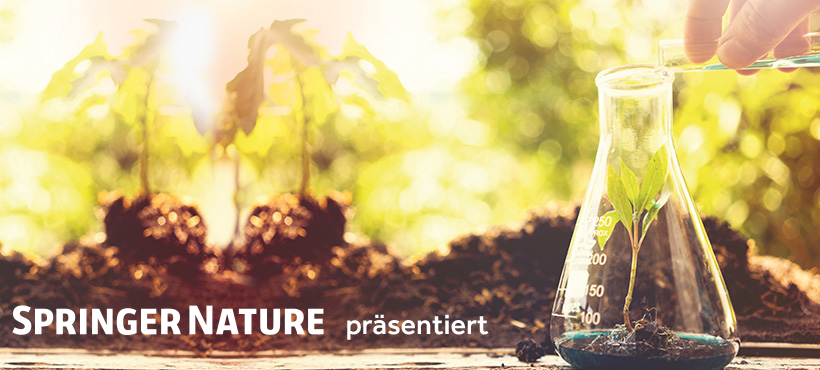
Details:
Date: 05.12.2020
Time: 10:00
Type:
Taste of Science - I want to know!






